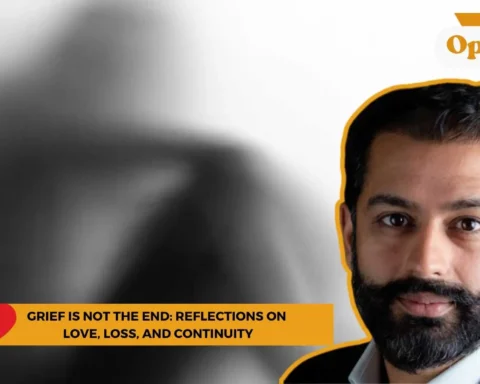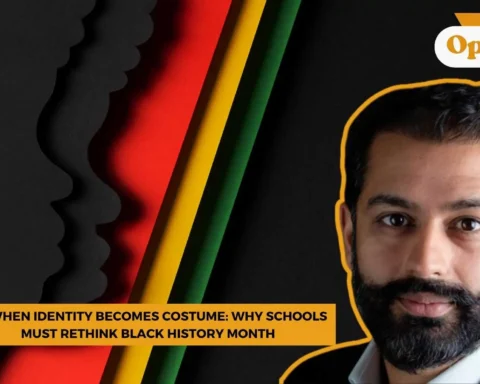Are we non-Newtonian fluids? Not just fluids, not just solids, but both. Fluids, because we don’t belong to a particular vessel, we take the shape of where we are put. Solids, because no matter where we are, we retain our originality. We obviously take the shape of the container but not as its constituents.
Tomorrow, I am returning to Banaras. It was a seven-day retreat, except there were no certain refreshments, just an amendment of usual college tasks. What I had felt during these days was nothing, for there was no time to introspect or lend and divide between my mind and heart. I fell into a high tide on a full moon night, and I didn’t feel fangs grow from my mandible or fur on my body.
What I felt was the same vicious, bloodthirsty spirit crawling under my skin, but finding no way out. The only outlet it had was my mouth, so I said things (more like roared?) It wasn’t me, obviously; I just paved the way for the wolf. But isn’t a mouth too small? How could it satisfy the ravenous mammal? Being inside me, it had so many organs to feed on, but I don’t know why it chose my brain, and inch by inch it devoured that tasteless food. I couldn’t deny it.
Sipping a cup of hot tea this evening, I finally felt my brain regenerate, which eventually led to some thinking. Bad thinking – sad. When it was my first time returning home for Durga Puja, I remember being drenched in overexcitement. It feels like yesterday, but it has already been over a month. These moments explain the relativity of time. The wynnorific nature of this sand slipping in an hourglass is odd to me. My previous holiday scenes seemed unreal. Indescribable. Magnificent. It felt like I was directly under the spotlight of the Divinity. Things I couldn’t have asked for were bestowed upon me with utmost nonchalance.
I always knew that humans are locked in an eternal struggle to understand the universe, and that the universe, in its vast indifference, never answers. But there’s always a difference between knowing and accepting. I grasped an overflowing amount of time just to accept it, and the universe began tossing it in and out of oblivion. Going back and packing again for Diwali, it felt as if the law of absurdity had gobbled the time span. You don’t get spare time to ‘feel’ things you are going through; you just go through and forget, maybe remember some.

Sitting in the crease of my palm, this hot cup of tea knows that it won’t have this particular human sensation of warmth for over a month; I felt that this ceramic vessel kept my tea warm for a longer time than it usually does. Maybe it was a way of telling me that it will miss me? My mouth is full of vinegar complaints, for I see the world in a transactional view. I feel lifeless objects pretend to have more life than the living ones, for they don’t know what it is like to have one.
The cup’s half empty. Not sure how long this open vessel holds onto the facade of warmth. I don’t feel like ending this, but somewhere a faint voice tells me to end it (the cup of tea, of course). Once a fruit falls from a tree, it can no longer tug itself in the same place. We don’t usually ask ourselves where we belong. We assume that the houses in which we grew up, the ones that shaped our early selves, fall under what we call ‘ours’. You will never really know that unless you leave them.
There’s a Bengali word biroho, which means the ache of separation. Not just the distance between two people, but the space that memory fills when someone is gone. It isn’t grief exactly, and it isn’t peace either. It lives somewhere in between, where love lingers even after touch has vanished. Biroho is the silence after a song ends, the warmth left in an empty room, the recognition that longing itself is proof of love’s endurance. It’s the heart’s way of keeping someone close, even when the world insists they’re far away.
I feel this biroho is what keeps bonds intact unconsciously, even when circumstances don’t prevail. It is the same biroho that ties assassins to their victims, a bond born of irreversible separation. The killer becomes tied to the victim through the act itself, haunted by absence, defined by what has been severed, the pain that comes when two lives intersect and then are violently torn apart, one through death, the other through conscience.
The same biroho that makes the widow still set two plates at dinner. The same biroho which exists in a mother’s mind whose girl child had to be beheaded, the soldier and the battlefield he left behind, the author and a word that refuses to come and fall on the paper, the sea that swallowed its sailor, a twin who survived, an innocent who is tortured by a guilty for years. And then biroho turns into bidroho – rebellion. Every rebellion was a longing, every rock was once magma. Between a revolt and an unbearable yearning lies a thin line of tolerance. That tolerance, being a semi-permeable membrane, filters the tiniest grains of pain.
Whatever, my tea is staining my cup. I need to finish it soon. My home’s bed won’t see me tomorrow night. It might be confused for a while, but after some years, won’t ask why. Same with this tea table, which had remained a witness to my nocturnal vigils of intellectual desperation and all-nighter study sessions. Driven by the instinct to survive and make the most of our potential, we mould ourselves to every environment, even those that quietly strangle our spirit.
Guess that’s the end of my tea. So, tell me, how aren’t we non-Newtonian fluids?

Let us know your thoughts. If you have burning thoughts or opinions to express, please feel free to reach out to us at larra@globalindiannetwork.com.









